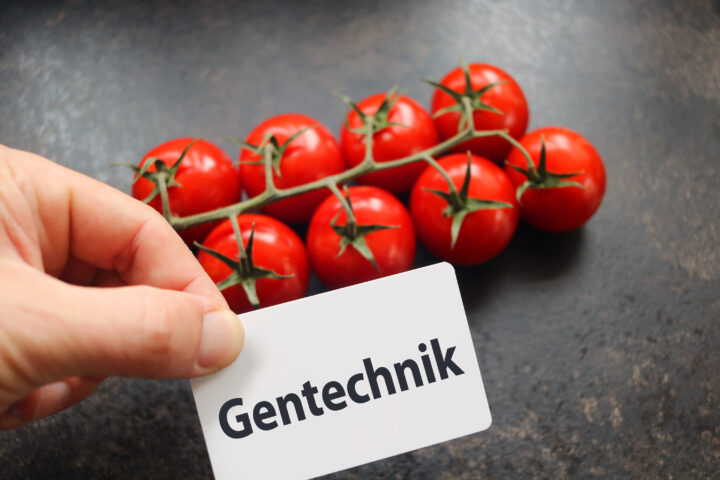
Downgraded wheat and infested fruit
For a number of crops, this past summer’s bad weather has led to poor harvests. Wheat has been particularly affected. As much as 90 percent of the harvest, depending on the region, has had to be downgraded. Fruit and vegetable producers have also felt the impact. A lack of sunshine, constant rain and colossal hailstorms have led to total losses in some cases. The only thing that might bring some relief would be a “golden autumn.”
Wednesday, September 15, 2021
It’s not a happy time for Switzerland’s farmers. Few can remember a wheat year as bad as this one. In central Switzerland, hailstorms destroyed a significant amount of the harvest. But yields were meager even in places where there was no hail. The newspaper “BauernZeitung” reported that in those places, average yields range from 50 to 60 dt/ha. Approximately one-third less wheat has been delivered to collection points, relative to previous years. In some regions up to 90 percent of the harvest had to be downgraded because of poor quality, meaning that the wheat will be used only for feed. Two reasons for downgrading were equally important: inadequate hectoliter weight (a common quality measure) and premature germination. Wheat also had to be downgraded because of infestation with mycotoxins (carcinogenic fungus).
Insufficient sunlight for fruit and vegetables
Wheat producers were not the only ones to be affected by the summer’s bad weather; vegetable and fruit farmers, too, suffered from these adverse conditions, as severe rain and hail caused massive damage to outdoor cultivation. There was too little sunlight for cucumbers, tomatoes and eggplants growing in greenhouses. According to the newspaper “St. Galler Tageblatt,” roughly 50 percent of the lettuce crop was lost between June and August, relative to its potential market volume. That figure was between 30 and 40 percent for zucchini, broccoli and cauliflower.
Persistently wet conditions in May were especially problematic for fruit growers. Infestation with scabs poses a threat to apples, while cherries are vulnerable to the Monilinia fungus. There has been a dramatic increase in efforts to protect harvests. Yet a lack of sunshine is almost more problematic than wet conditions – for fruit farmers, too. Too-low temperatures and insufficient light mean smaller and lower-quality harvests. As the “St. Galler Tageblatt” points out, unless we have a “golden autumn,” there will be a shortage of root vegetables, and imports will have to fill the gap. This would be all the more regrettable, given that carrots are the most popular vegetable in Switzerland; per-capita consumption amounts to 9 kilograms per year.
Poor harvest year 2021
The year 2021 will leave its mark on practically all crops in the form of harvest losses and total failures. Particularly affected are viticulture and fruit growing, where severe hailstorms destroyed most of the fruit. However, added to this was waterlogging of fields and strong pressures from plant diseases. Powdery mildew and late blight were able to spread particularly well due to the damp and wet conditions. In order to protect potatoes to some extent from late blight, farmers were dependent on effective pesticides. Without these means, there would probably have been total failures in the potato harvest as well. 150 years ago, the fungal disease destroyed entire annual crops and led to terrible famines that claimed a million lives in Ireland (out of a population of 8 million at the time) and triggered mass emigration. The wet summer of 2021 would probably also have led to famine in previous generations - when no effective pesticides were available and imports were not possible. This was taking place in a summer when two popular initiatives wanted to ban the use of pesticides or financially reward non-usage and thus wastage of food on the field. A current study by Agroscope once again confirms: A total renunciation of pesticides would result in crop failures of up to 47 percent. That means: More imports where imports are possible. Where no replacement can be obtained, second-class goods come onto the shelves or shelves remain empty. For consumers, scarcity also means higher prices.
Sources
BauernZeitung, August 31, 2021
St. Galler Tagblatt, September 1, 2021 (only available in print)
Related articles

ARTE documentary: Genetic engineering in organic farming?
The ARTE documentary “Genetic engineering in organic farming?” examines key controversial questions of modern agriculture: Is the general exclusion of new breeding technologies still up to date? Can the resistance of organic farming be justified scientifically?

The Great Suffering of Farmers
Fire blight, Japanese beetles, or grapevine yellows – farmers in Valais, too, are increasingly feeling helpless in the face of the threats posed by nature. More and more often, they lack the means to effectively protect their crops. This makes it all the more important for the Federal Council to place a pragmatic balancing of interests at the forefront when setting threshold values.

'Tomatoes on your eyes'
The submitted “Food Protection Initiative” calls for “GMO-free food.” Leaving aside this illusory demand, its adoption would mean more bureaucracy, more trade barriers, and less innovation. The Swiss Farmers’ Union describes the proposal as “unnecessary” and warns of a setback to the goal of achieving an even more sustainable agriculture.

How our daily lives end up in the water
When residues in our waters are discussed, agriculture is often portrayed as the main culprit. Yet a closer look shows that the sources are diverse and often much closer to everyday life than assumed.

